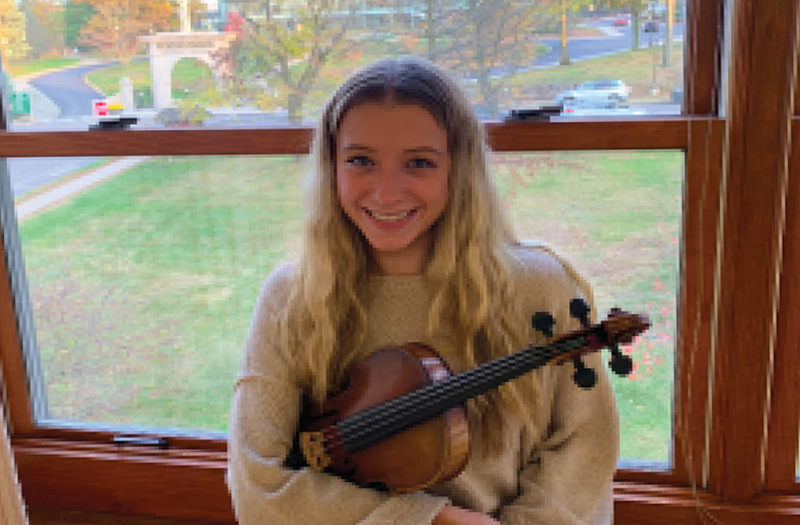
The teachers stood out to me at Marywood. Meeting with Sophie Till, associate professor of violin and viola, was the deciding factor in choosing Marywood. Faculty absolutel...
Marywood University's Bachelor of Arts in Arts Administration with a concentration in Music offers a distinctive blend of music education and business management, preparing you for a variety of roles in the arts sector. Our curriculum includes courses in music theory, history, and performance, alongside business courses covering marketing, finance, and management tailored to the arts industry. Students may choose a concentration in either music or theatre. They must also choose a secondary concentration in music, theatre, or art.
What sets our program apart is the emphasis on real-world experience and professional readiness. Through internships, projects, and collaborations with arts organizations, students gain practical skills directly applicable to their future careers. Our dedicated faculty, seasoned in both music and business, provide personalized guidance and mentorship, ensuring you build a strong network within the arts community. Graduates are equipped to lead and innovate in arts administration, contributing significantly to cultural institutions and educational programs.
WIth a 1,100-seat main stage theatre and concert hall, Marywood offers over 20 ensembles and 3 major productions every year, providing plenty of opportunities to get involved and showcase your creative talents.
Marywood is ranked #14 Best Value School by U.S. News & World Report’s Best Colleges rankings for 2026, making Marywood a great, centrally located option for students in Northeastern Pennsylvania who want to stay closer to home.


The teachers stood out to me at Marywood. Meeting with Sophie Till, associate professor of violin and viola, was the deciding factor in choosing Marywood. Faculty absolutel...
Explore the vibrant community and endless opportunities that await you at Marywood. Attend one of our special events designed specially for you to learn more about Marywood's degree programs, dedicated faculty, and welcoming campus.
Weekday Visits »Marywood University hosts three academic Centers of Excellence on campus; The Center for Law, Justice and Policy, The Center for Urban Studies, and The Mother Theresa Maxis, IHM Center. Each center provides students with the tools and resources to excel in their academic endeavors, fostering a dynamic environment where they can engage deeply with their respective fields of study and make meaningful contributions to their communities and beyond.
Marywood University is accredited by the Middle States Commission on Higher Education (MSHE). / ADDRESS / 3624 Market Street, 2nd Floor West, Philadelphia, PA 19104. | Phone: (267) 284-5000
The Bachelor of Arts (B.A.) in Arts Administration (Primary concentration in Music) is Accredited by the National Association of Schools of Music (NASM).
PROFESSIONAL MEMBERSHIPS / National Association for Music Education (NAfME) / Pennsylvania Music Education Association (PMEA).
Info For: